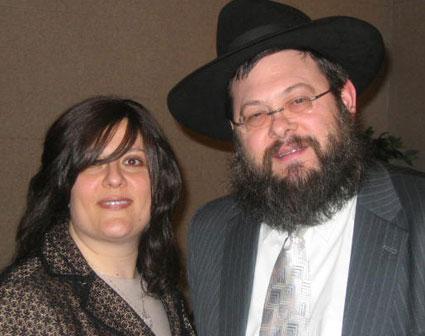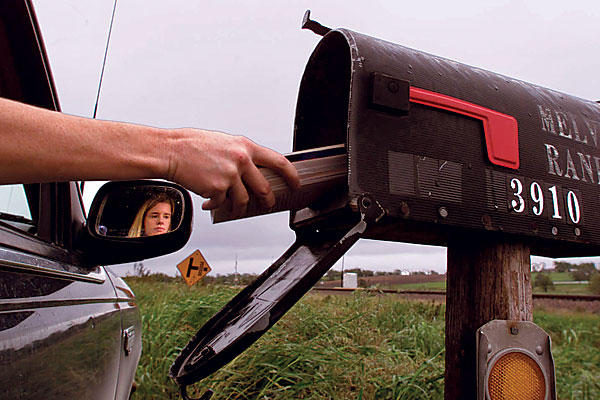26
Jul
President Barack Obama spoke to the nation last night. His appearance on television prompted a heated discussion among a family I am visiting in Minnesota.
Previously, I did not know anything about my friends’ political or religious views. So when sitting in the living room last night, they suddenly said they did not like the president, I asked why.
“Don’t get me wrong. I’m not a racist. You know that,” The daughter told me. “But in the three years he has been president, he has done nothing. The country has become worse.”
I probed her further, pointing out that the precarious financial state of this country could not be fixed in just a few years.
“He has made the debt worse by spending money on abortion programs and giving aid to immigrants,” She explained.
“A lot of people think so,” the mother chimed in as she left the living room and headed for the kitchen.
“And [the president] supports gay marriages,” the father added. “I can’t stand this guy.”
I realized then that they were talking about their emotions and personal beliefs and not really about the economy. Otherwise how could anyone say that the $14,347-billion national debt is being caused by the aid to immigrants in the US?
In France, North Africans are considered to be the problem. In Minnesota, the Somali refugees are the new scapegoat.
Having worked as an immigrant counselor in the Chicagoland area, I tried explaining to my friends that refugees do not lead the high life on government money.
But logic does not work on emotions. The argument got even more heated, rolling from one subject to the next faster than I could keep up. I let the father and daughter go at it without me and tried to hear the president’s speech.
“I’m confident we can reach a compromise,” said the president on television. He added something about respect in our disagreement.
In the living room, the volume of the dispute went up a notch.
“Do you know the difference between voodoo and wicca?” the daughter asked.
“They’re all a cult,” the father barked.
“No, they’re not!”
On television:
“America, where every human view is welcome; where out of many, we are one.”
In the living room, the full-blown argument changed topic.
“You have never read the bible,” the father accused his daughter.
“Yes, I have. I just didn’t read it from front to back; it’s too boring,” the daughter defended herself.
“That’s not reading the bible,” the father retorted.
On television:
“So let’s seize this moment to show that The United States of America is still the greatest nation.”
The president’s 15-minutes speech is over and the father/daughter Christian duo are still arguing. Now the topic is: Why is the Da Vinci Code wrong?
“… I heard it on Christian radio,” the father yelled.
“You are believing what you heard, I know what I read,” the daughter yelled back. “I have read that book front to cover.”
“You can read it all you want,” the father shouted. “I don’t care.”
The shout-out had reached an impass. The mother stepped in.
“What is the rule in our house?” she interjected. “We don’t discuss politics. We don’t discuss religion. In this house, we can’t discuss personal views.”
And that is how I spent my evening in Minnesota.
I went shul hopping in Rochester, MN.
The first synagogue I tried was a reform one. It had a big beautiful, modern building that looked promising. On Shabbat morning, my friends dropped me off. I told them the service would probably last three hours.
As soon as I walked in the building, the rabbi said, “The service will be cut short today; I am leaving for the airport right after.”
I looked at her in total shock. She, the rabbi, was taking a plane on Shabbat? This synagogue was way too liberal for me. But since I was already there, I decided to stay for the service.
There were only two other people in the sanctuary: a woman and her soon-to-be-Bar-Mitzvah son. The service was a blur. We had a quick kiddush afterwards of grape juice and cookies. Then I left. I had two hours to kill before my friends returned.
For my next Shabbat in Minnesota, I chose to go to a more traditional synagogue. I found the Chabad-Lubavitch center on 2nd street. The center was a beige two-story house with a giant menorah on the front lawn. The black menorah must have been one-story high.
I pushed the door open _ ignoring the door bell since it was Shabbat _ and entered. There was a big open room on my left, divided by a carved wall partition, the mechitza, separating the men from the women. The rabbi came and welcomed me, showing me the women’s section. I was the first woman. There were two narrow tables with blue siddurim on them. Through the mechitza on my right, I could see the men davening (praying).
The rabbi was funny. Throughout the service, he told stories, made jokes while we waited for more men to arrive and make the necessary minyan (the quorum of 10 Jewish adults) for a complete service.
“We’re going to have a juggler today,” the rabbi announced.
A few minutes later, the young man showed up, soaked to the bone. He had been caught in the downpour outside.
“Do you want a siddur? Do you want a towel?” the rabbi joked.
The juggler made up the sixth men, not enough for a minyan (women did not count in an orthodox shul). So we read the parashah of the week from the Chumash, instead of the sefer torah. It was still a good, spiritual service.
Afterward, the rabbi’s wife invited all of us to the kiddush. The table was abundant with salads, gefilte fish, a big bowl of meat and potatoes and homemade challah and chocolate-chip biscotti. There was wine, grape juice, orange juice and even a bottle of vodka. Being somewhat vegetarian and not much of a drinker, I avoided the meat and the vodka and enjoyed the rest.
At the kiddush table, every story was an opportunity to learn and study. We talked about juggling and how it is mentioned in Jewish texts. The rabbi even went and got a book that described the art during the festival of sukkot.
We also talked about the Jews of Congo and my research on the subject. The rabbi asked if I had been to a Chabad center before. I told him once, in Edmonton, Alberta. The rabbi happened to know his colleague in Edmonton. I was amazed to hear he also knew the rabbi in Kinshasa, Congo.
I had a wonderful time at the Chabad center. The warm and welcoming rabbi and his wife can certainly serve as examples to the rest of us Jews. I look forward to returning to their synagogue next Shabbat.
In the Parisian region of France, the mail person rides a motorcycle to handle the deliveries. The bright yellow bike swings in and out of people’s driveways to drop off letters in the mailboxes.
In Sargeant, Minnesota (a town of less than 200 people), the mailman looks like a Harley Davidson biker with his bushy beard and baseball cap; but he drives a pick up truck. To say drive is an understatement. The mailman sits shotgun on the passenger seat to be within reach of the street lining mailboxes. Then, he reaches over to the left, grabs the wheel and drives on to the next house.
I haven’t figured out yet how he manages the brake and gas pedals. It would be so much easier for the US Post Office to order cars from England. The English cars come with wheels on the right side. At least the rural mail personnel would no longer need to be acrobatic.


